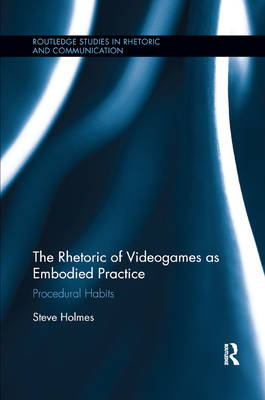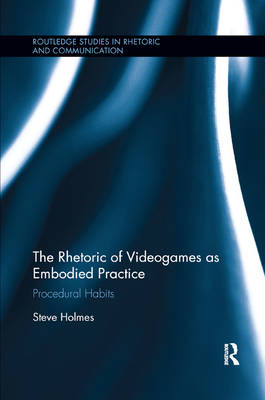
- Retrait gratuit dans votre magasin Club
- 7.000.000 titres dans notre catalogue
- Payer en toute sécurité
- Toujours un magasin près de chez vous
- Retrait gratuit dans votre magasin Club
- 7.000.0000 titres dans notre catalogue
- Payer en toute sécurité
- Toujours un magasin près de chez vous
Description
The Rhetoric of Videogames as Embodied Practice offers a critical reassessment of embodiment and materiality in rhetorical considerations of videogames. Holmes argues that rhetorical and philosophical conceptions of "habit" offer a critical resource for describing the interplay between thinking (writing and rhetoric) and embodiment. The book demonstrates how Aristotle's understanding of character (ethos), habit (hexis), and nature (phusis) can productively connect rhetoric to what Holmes calls "procedural habits" the ways in which rhetoric emerges from its interactions with the dynamic accumulation of conscious and nonconscious embodied experiences that consequently give rise to meaning, procedural subjectivity, control, and communicative agency both in digital game design discourse and the activity of play.
Spécifications
Parties prenantes
- Auteur(s) :
- Editeur:
Contenu
- Nombre de pages :
- 274
- Langue:
- Anglais
- Collection :
Caractéristiques
- EAN:
- 9780367890902
- Date de parution :
- 10-12-19
- Format:
- Livre broché
- Format numérique:
- Trade paperback (VS)
- Dimensions :
- 152 mm x 229 mm
- Poids :
- 452 g

Les avis
Nous publions uniquement les avis qui respectent les conditions requises. Consultez nos conditions pour les avis.






